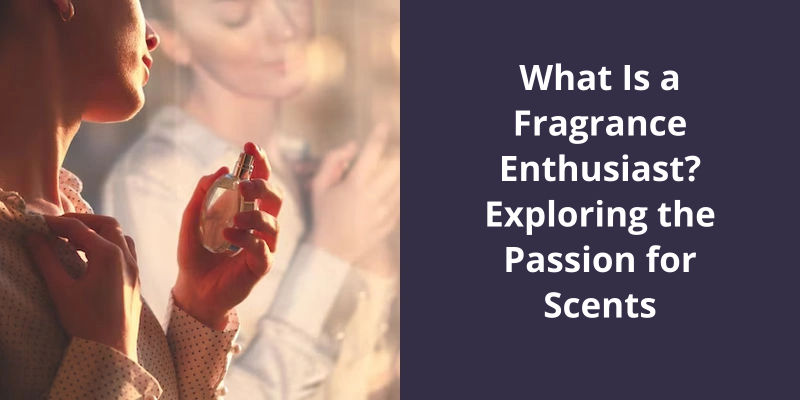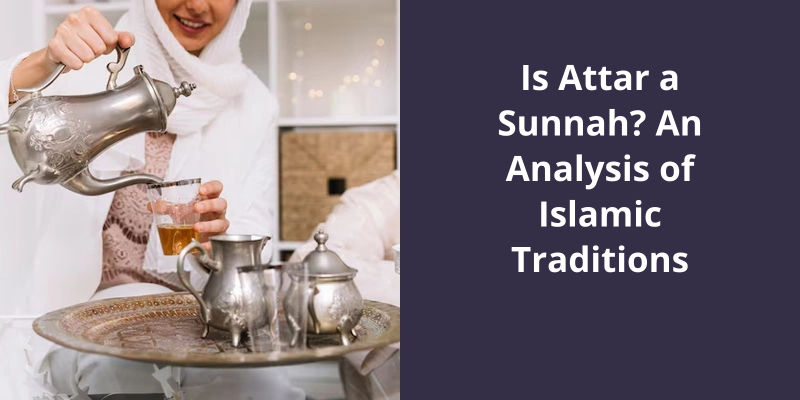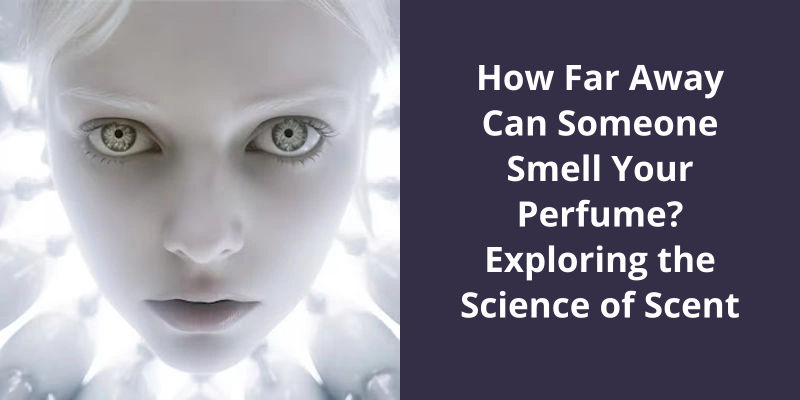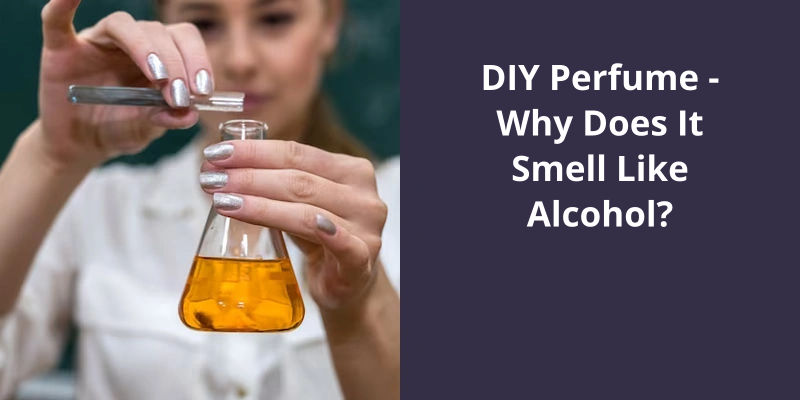A fragrance enthusiast is someone with a deep passion and interest in various scents and perfumes. They appreciate the craft behind creating a fragrance, understanding its individual components, such as different notes and accords. Fragrance enthusiasts often have extensive collections of perfumes and they enjoy exploring and learning about new or niche scents. They might also participate in events or join online communities where they share and broaden their knowledge about various fragrances. Their fascination with perfumes isn’t just limited to wearing them, but it also extends to the storytelling potential each scent holds, allowing them to express themselves or evoke certain memories or emotions.

What Is a Fragrance Chemist Called?
Additionally, a perfumer must have a great sense of smell and a discerning palate for fragrance. They must be able to accurately identify the various scent molecules that are responsible for different fragrances and understand how to blend these molecules together to create unique and appealing scents.
This requires a strong foundation in chemistry and a data-driven approach to fragrance creation. Through in-depth experimentation and analysis, a perfumer can develop formulas that incorporate new or rare ingredients in unique and exciting ways.
To become a fragrance chemist, one would typically follow a career path that includes both academic study and hands-on experience. Many perfumers have a background in biology, chemistry, or medicine and may have worked in a lab or scientific research setting before transitioning to fragrance production. Others may have studied perfumery or fragrance chemistry specifically at a school or university that offers programs in this area.
The History and Evolution of Perfumery and Fragrance Chemistry
Perfumery and fragrance chemistry have a rich history that dates back to ancient civilizations. Over time, techniques and processes for extracting scents from various plants and animals have evolved, leading to the development of modern perfumery. In recent years, advancements in technology and chemistry have further revolutionized the fragrance industry, allowing for the creation of unique and complex scents.
So, can you become addicted to smells? The answer may surprise you. While it may seem unlikely, some individuals do experience a higher secretion of dopamine when using certain fragrances, leading to a potential fragrance addiction. In fact, some scents, such as wet earth, coffee, gasoline, or glue, may be inherently addictive. But what’s the neurological explanation behind this phenomenon?
Can You Be Addicted to Smells?
Fragrances can be incredibly powerful and evoke strong emotions and memories in individuals. It isn’t uncommon for people to have a particular scent that they enjoy or dislike, but can someone really be addicted to a smell? Research has shown that it’s possible for individuals to become addicted to certain fragrances, specifically those that trigger a higher secretion of dopamine in the brain.
Dopamine is a neurotransmitter that’s responsible for pleasure and reward in the brain. It’s released when we engage in activities that bring us joy and satisfaction, such as eating our favorite foods or engaging in sexual activity. The release of dopamine creates a feeling of euphoria and can be highly addictive.
Some fragrances, like those of wet earth, coffee, gasoline, or glue, are naturally addictive due to the chemicals they contain. For example, wet earth contains a chemical compound called geosmin, which creates a distinct earthy scent that some individuals find addictive. Similarly, the scent of gasoline contains hydrocarbons that can elicit a sense of pleasure in some people.
For example, if someone grew up in a home with a particular scent, they may associate that scent with feelings of comfort and safety. This can cause them to seek out that fragrance as they associate it with positive emotions. Similarly, someone who associates the scent of coffee with waking up energized and ready for the day may become addicted to that fragrance.
Interestingly, fragrances can also stimulate other senses besides smell. For example, the scent of lavender has been shown to induce relaxation and can even help improve sleep quality. So, it’s possible for individuals to become addicted to the feeling of calmness and relaxation that comes with lavender-scented products.
So, the next time you find yourself reaching for that certain scent over and over again, know that it may be more than just a preference, but an addiction.
Source: Can you get addicted to a fragrance’s smell?..
The olfactory experience that comes from perfume is one that’s captivated humanity for centuries. There’s just something about a well-crafted scent that’s the power to transport us to another time and place. However, as with all things, language can be a barrier to fully expressing the depth of this experience. So what’s a word for perfume smell? Let’s explore some options.
What Is a Word for Perfume Smell?
The word “fragrance” is a term that’s used to describe a pleasing and sweet smell. This term is most commonly associated with the scent of flowers and plants, which are known to be fragrant. One of the most common associations with fragrance is the idea of scent that’s used to entice or attract others.
Perfume smell is often associated with women. Perfume is a type of fragrance that’s designed to be worn on the body. It’s made up of a combination of natural and synthetic ingredients that are blended together to create a unique scent. Many perfumes are made using essential oils that are extracted from flowers, herbs, and other plants. The scent of perfume is often used to evoke feelings of romance or sensuality.
Redolence is another synonym for fragrance. This term is often used to describe the aroma of something that’s pleasing or attractive. The redolence of a perfume or cologne can be very appealing to those who appreciate the beauty of scent.
Scent is often associated with animals, such as dogs, who use their sense of smell to navigate and identify scents. Humans also use their sense of smell to identify different scents and to appreciate the beauty of fragrance.
Each of these terms is used in slightly different contexts but they all refer to the same thing – a pleasing aroma that can evoke feelings of pleasure, romance, or sensuality. Whether you prefer the fragrance of perfume, the redolence of flowers, or the scent of nature, there’s no denying the beauty of fragrance.
The History of Perfumes and Their Significance in Different Cultures
- Ancient Egyptians were among the first to use perfumes, which were made from natural ingredients such as flowers, herbs, and spices.
- In ancient Rome, perfumes were used not only for pleasure but also as a symbol of social status.
- During the Islamic Golden Age, perfumery became a highly developed art form, with Muslim chemists and perfumers creating new fragrances and refining the distillation process.
- In India, attar, a natural perfume oil made from flowers, has been used for centuries in religious ceremonies and as a traditional form of Ayurvedic medicine.
- During the Renaissance, perfumes became popular in Europe, with royalty and the wealthy using them as a form of fashion and excess.
- In modern times, the perfume industry has grown to become a multi-billion dollar business, with new fragrances being launched every year.
- Perfumes continue to play an important role in different cultures, with each culture having it’s unique preferences and traditions when it comes to fragrance.
If you’re looking for a job that combines your passion for fragrances with your exceptional customer service skills, then working as a perfume seller might just be the perfect fit for you. As a perfume seller, you’ll be responsible for welcoming customers, assisting them in finding the right fragrance, and ensuring that they’ve a positive buying experience. But, beyond that, there are a number of other qualities that are required to be successful in this role. Let’s take a deeper look at what it really takes to be a successful perfume seller.
What Is the Job Description of a Perfume Seller?
As a perfume seller, it’s your responsibility to provide a memorable shopping experience for your customers. You must be able to explain the different fragrance families (oriental, woodsy, floral, etc.) and describe the nuances of each scent to guide customers towards their ideal fragrance. You’ll also be responsible for suggesting complementary fragrances based on a customers preferences and needs.
In addition to knowledge of fragrances, you must also have exceptional communication and customer service skills. You’ll be expected to engage with customers in a confident, friendly, and professional manner. You must be able to build rapport with your customers, answer any questions they may have, and provide assistance tailored to their specific needs and preferences.
It’s also important to keep up with the latest product offerings and trends in the industry. This means staying up-to-date on new scents, celebrity collaborations, and seasonal releases. As a perfume seller, you’ll be expected to be knowledgeable about industry trends and able to share this information with your customers.
You’ll be required to work in a fast-paced environment and meet sales targets. This means being able to work efficiently under pressure, while maintaining high levels of accuracy and attention to detail. You’ll also need to be comfortable with handling cash transactions, managing inventory, and processing returns or exchanges.
In summary, the job description of a perfume seller involves selling fragrances to customers, providing exceptional customer service, and staying up-to-date with industry trends.
The sense of smell is an extraordinary one, and for those who’ve an affinity towards fragrances, it can be a highly rewarding passion. The world of perfumery is vast and varied, and it takes a certain level of expertise to distinguish a good fragrance from a bad one. In this context, the term ‘CognoScenti’ is used to describe someone who’s a true lover of perfume, and who’s the ability to recognize and appreciate the finer aspects of a fragrance.
What Do You Call a Person Who Loves Fragrance?
A person who loves fragrance is often described as someone who’s a heightened sense of smell and an appreciation for fine scents. They’re passionate about exploring different fragrances and finding the perfect one that complements their personality and style. Whether it’s a fresh floral scent or a warm musky one, fragrance lovers understand the intricacies of each note and how it contributes to the overall scent.
They’re the ones who can truly appreciate the artistry and craftsmanship that goes into making a great perfume.
The Art of Perfume Making: Understanding the Techniques and Ingredients Involved in Creating Fragrances
- Understanding the different fragrance families
- Learning about fragrance notes and accords
- Exploring essential oils and their properties
- Creating a fragrance blend
- Understanding the role of alcohol in perfume making
- Bottling and packaging your fragrance
Conclusion
They possess a wealth of knowledge and understanding of different scents, notes, and compositions. These enthusiasts are constantly exploring the world of fragrance, discovering new and unique creations, and sharing their experiences with others. They’re the ones who outshine in recognizing the depth of the fragrance and the beauty it conveys.





